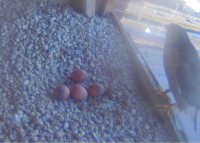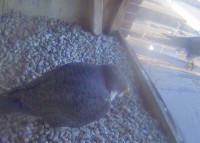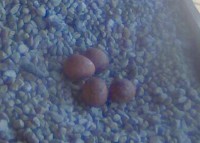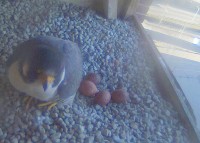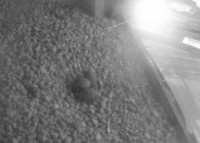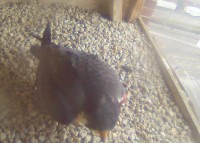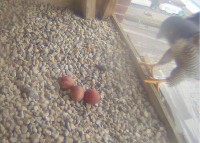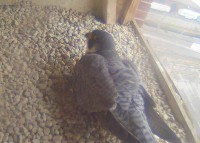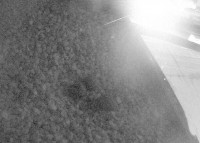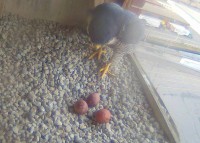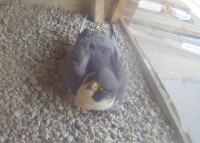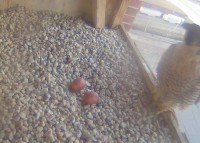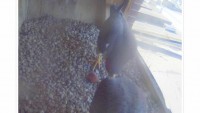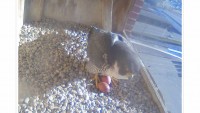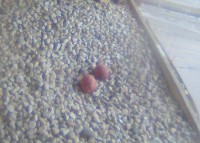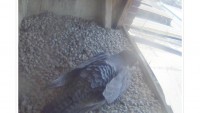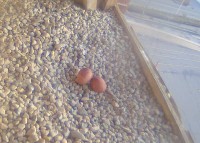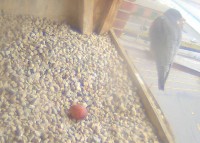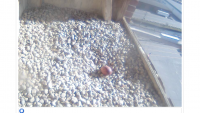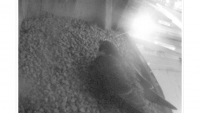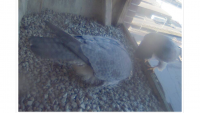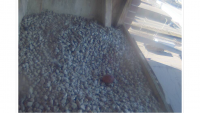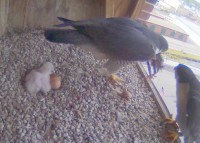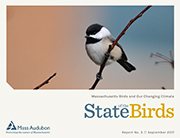Lawrence Peregrines: full time incubation begins!
April 13, 2018 in In the Nest Box, lawrence peregrines, Peregrine Falcons Eastern Massachusetts, Peregrine Falcons Massachusetts
Onset Of Broodiness And Incubation In Relation To Laying
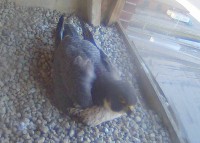 Here is a look around 6:30 AM this morning, under clear skies, winds from the west at 8MPH, and temps in the low fifties. It looks like we have officially started full time incubation. In temperate latitudes, full time incubation usually begins with the penultimate, or second to last egg egg. When temperatures are at or near freezing, active incubation may start a bit earlier. We have now seen either the female or the male incubating the eggs with almost no break in between shifts, since the fourth egg was laid. The male seems to be taking a very active role in the incubation process.
Here is a look around 6:30 AM this morning, under clear skies, winds from the west at 8MPH, and temps in the low fifties. It looks like we have officially started full time incubation. In temperate latitudes, full time incubation usually begins with the penultimate, or second to last egg egg. When temperatures are at or near freezing, active incubation may start a bit earlier. We have now seen either the female or the male incubating the eggs with almost no break in between shifts, since the fourth egg was laid. The male seems to be taking a very active role in the incubation process.
Both sexes have paired lateral brood patches. Less well developed in male. Belly area may function as patch also but less edematous and vascular than breast (TJC). In this photo, the male is taking a break on outside edge of the nest box. He waited a while until the female showed up and set down on the perch pole outside the nest box.
The peregrines at this location have usually incubated their eggs for 29 to 33 days. In the early days of brooding it’s important to keep the eggs as close to their ideal incubating temperature as possible. If it is too hot or too cool and the eggs won’t develop properly. Later in the incubation process, proper temperature isn’t quite as important. After a couple of weeks the falcons will be able to leave the eggs uncovered for longer periods of time. Sometimes leaving the eggs uncovered frequently, or for long periods can mean that the eggs hatch a few days later than normal. This is a very well protected nest box in a location where the resident peregrines will not be disturbed, so they will tend to incubate steadily until the eggs hatch.
Literature cited:
White, C. M., N. J. Clum, T. J. Cade and W. G. Hunt. 2002. Peregrine Falcon (Falco peregrinus), version 2.0. In The Birds of North America (A. F. Poole and F. B. Gill, Editors). Cornell Lab of Ornithology, Ithaca, NY, USA. https://doi.org/10.2173/bna.660
